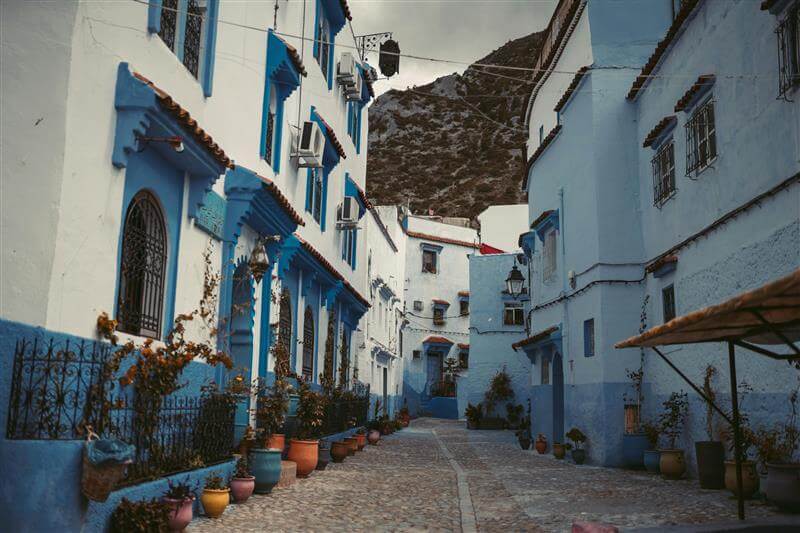Europe
Import to Morocco
While Morocco’s proximity to Europe makes it an ideal location for data centers, its technology industry still has untapped potential. As your IOR or EOR, TecEx can facilitate seamless trade with Morocco so you can leverage this emerging tech hub.

Tax
up to 35%
Duties
up to 25%
Lead Times
3-4 weeks
Restricted Items
Products produced in Iran, drones
Best Carrier Option
Courier
Non-Working Days
Saturday, Sunday, and Public Holidays
Prominent Language
Arabic, Tamazight, Darija
Export from Morocco
Like its neighbor Algeria, Morocco is a gateway between Africa and Europe. While less prominent than historical routes, some trade still exists between the Canary Islands and Morocco.
Morocco is part of the MENA region, which consists of Algeria, Bahrain, Iran, Iraq, Israel, Jordan, Kuwait, Lebanon, Libya, Morocco, Oman, Qatar, Saudi Arabia, Syria, Tunisia, the United Arab Emirates, Palestine, and Yemen.
Morocco has an Association Agreement with the European Union. This agreement covers trade in goods, services, and investment and includes provisions on cooperation in areas such as development, education, and culture. In addition, Morocco has a Free Trade Agreement (FTA) with the United States under the USMFTA. This eliminates many tariffs and simplifies market access and legalities between the two countries, making Morocco more attractive for US importers and investors.
Morocco is also a member of the World Trade Organization (WTO), the African Continental Free Trade Area (AfCFTA), the Arab Maghreb Union (AMU), the Arab Monetary Fund (AMF), and other international economic organizations. These memberships have helped to boost Morocco’s economy and create jobs. They have also made Moroccan goods more competitive in global markets.
Digital Morocco 2030
Morocco is a growing destination for the research and development of new technologies. The rich start-up ecosystem makes it an ideal destination for tech importers, while Moroccan ICT exports are set to hit $2.2 billion by 2026.
With its national strategy, Digital Morocco 2030, Morocco strives to position itself as a prominent tech hub and center for innovation in Africa. To achieve this, it is promoting tech advancements like cloud computing, AI, and connectivity, as well as talent development. The country has already attracted significant investment from the US-based company Oracle to support its digital advancement by developing cloud centers. Two centers in Casablanca and Settat will give local and regional companies access to advanced cloud services.
Recently, Morocco has become a significant producer of renewable energy, investing heavily in solar and wind-powered tech.
Population
38 M
Biggest Industry by Export
Automotive
Capital City
Rabat
Biggest Industry by Import
Petroleum
Unique Pain Points Impacting Moroccan Imports and Exports
Morocco import requirements are complex. Strict protocols and bureaucracy, with often inefficient permit processes, make delays common for importers and exporters. High import duties and taxes, limitations in infrastructure, and institutional risks from corruption and fraud compound trade barriers.
Additionally, certain restrictions are imposed on communication equipment and other tech items. Morocco requires several documents and licenses to attain import approval. These extra licenses can increase lead times, and it is essential to note that identifying HS codes is crucial.
Additionally, while second-hand goods can be imported to Morocco, their valuation must be accurate and below the brand-new market value. Incorrectly valued goods risk re-valuations and delays.
The complexities and challenges of importing into Morocco also include strict regulations on tech and dual-use goods, which are subject to additional scrutiny and special certifications and approvals. The Moroccan control list of dual-use goods is primarily based on the European Union’s international control list.
Technical inspections of export goods can also incur additional costs, with a 25% para-fiscal tax. However, countries with preferential treatment through FTAs are exempt from this tax.
Incoterms are also vital to understand for smooth shipments to Morocco. The CIF incoterm is strictly forbidden in the country.
Countries associated with Morocco
Europe
France
Asia
China
IOR and EOR Morocco
TecEx offers a hassle-free solution for shipping goods to Morocco without requiring end-user participation. Through the TecEx App, you can access a comprehensive list of all necessary pre-compliance documents and their corresponding lead times for procurement. As your IOR or EOR, we will ensure you acquire all the necessary licenses, documents, and permits to seamlessly import or export from Morocco.
Our comprehensive understanding of cross-border requirements, advanced HS code database, understanding of incoterms, and expertise in duties and taxes ensure our proactive response to changing restrictions and prohibitions on imports and exports from Morocco.
If you seek a dependable and seasoned ally to navigate your import and customs compliance needs in Morocco, TecEx is your ideal partner. Partner with a well-versed expert in the intricacies of the global landscape to simplify and enhance global trade compliance.
Specific Compliance Regulations to Import to Morocco
Morocco “Import Commitment”
An “import commitment,” or “engagement d’importation,” is mandatory to import goods to Morocco. This signifies authorization from the Foreign Exchange Office to transfer foreign currencies to foreign suppliers.
Morocco Verification of Conformity (VoC)
Much like a Certificate of Conformity, a VoC certifies that imports to Morocco comply with Moroccan standards for quality and safety. The Moroccan Ministry of Industry, Investment, Trade, Green and Digital Economy (MCINET) introduced the program in 2020.
Your global trade solution for Morocco
Fill in the form to get in touch with us, and our experts will contact you with customs compliance solution to suit your needs.



